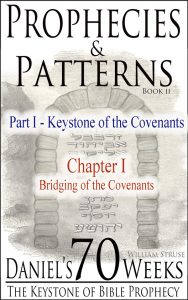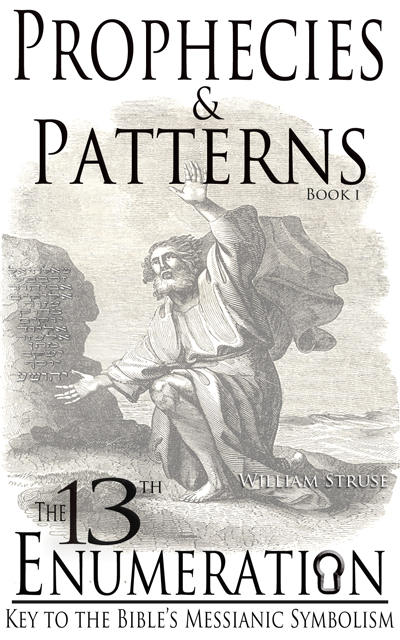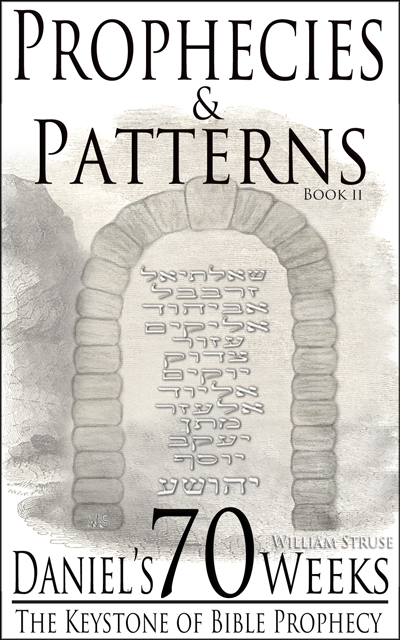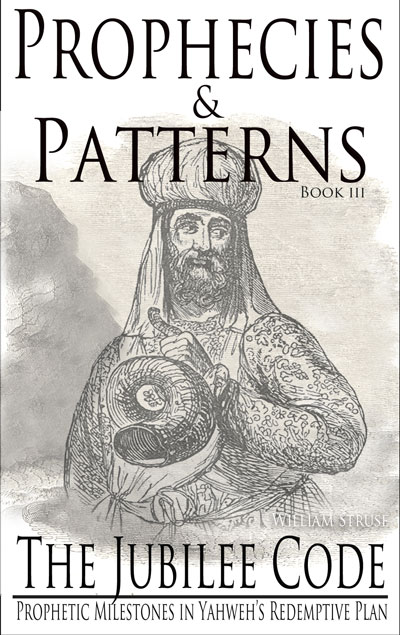 The book of Genesis tells us of what is arguably the single greatest tragedy in mankind’s history. It records mankind’s first sin and how, as a result, our ancestors were cursed with death and cast out of Eden. But thankfully, the story doesn’t end there. Mankind is not left without hope of a future restoration and reconciliation with our Creator. Before Adam and Eve were cast out of the garden, our Creator, YHWH, promised them that someday their “seed” would triumph over the serpent who had deceived them. Thus began one of the most ancient and important covenants in the Bible, the covenant of the promised seed.
The book of Genesis tells us of what is arguably the single greatest tragedy in mankind’s history. It records mankind’s first sin and how, as a result, our ancestors were cursed with death and cast out of Eden. But thankfully, the story doesn’t end there. Mankind is not left without hope of a future restoration and reconciliation with our Creator. Before Adam and Eve were cast out of the garden, our Creator, YHWH, promised them that someday their “seed” would triumph over the serpent who had deceived them. Thus began one of the most ancient and important covenants in the Bible, the covenant of the promised seed.
One way to look at the Bible’s underlying redemptive message is to see the Old Testament (Covenant) texts as YHWH’s promise to reconcile and restore mankind through the promised seed of the Messiah and the record of how that promise was worked out through the descendants of Adam and Eve. The New Testament (Covenant) texts, on the other hand, show how the ancient redemptive promises of the Bible have been and will be fulfilled in the Messiah Yeshua, that promised seed.
What makes the prophecy of 70 weeks so relevant is that it is here, in the ninth chapter of the book of Daniel, that we first find a specific timetable for the fulfillment of the ancient promise made to Adam and Eve and confirmed to subsequent generations through Noah, Abraham, Isaac, Jacob, and David, and finally fulfilled in Yeshua the Messiah. Before we continue, let’s briefly trace this covenant through the Scriptures. Please take a moment to read the verses below; they are imperative to establishing the covenantal promise that was to be fulfilled in the future Messiah.
And I will put enmity between thee [the serpent] and the woman, and between thy seed and her seed; it shall bruise thy head, and thou shalt bruise his heel. (Genesis 3:15)
And God spake unto Noah, and to his sons with him, saying, And I, behold, I establish my covenant with you, and with your seed after you. (Genesis 9:8–9)
By myself have I sworn [to Abraham], saith YHWH . . . And in thy seed shall all the nations of the earth be blessed; because thou hast obeyed my voice. (Genesis 22:16–18, emphasis mine)
And YHWH appeared unto him [Isaac], and said . . . And I will make thy seed to multiply as the stars of heaven, and will give unto thy seed all these countries; and in thy seed shall all the nations of the earth be blessed. (Genesis 26:2–4, emphasis mine)
And Jacob went out from Beersheba . . . And, behold, YHWH stood above it, and said, I am YHWH God of Abraham thy father, and the God of Isaac . . . and in thee and in thy seed shall all the families of the earth be blessed. (Genesis 28:10–14, emphasis mine)
I have made a covenant with my chosen, I have sworn unto David my servant, Thy seed will I establish for ever, and build up thy throne to all generations. Selah. (Psalm 89:3–4)
Ye are the children of the prophets, and of the covenant which God made with our fathers, saying unto Abraham, And in thy seed shall all the kindreds of the earth be blessed. Unto you first God, having raised up his Son Jesus, sent him to bless you, in turning away every one of you from his iniquities. (Acts 3:25–26, emphasis mine)
Blessed be the Lord God of Israel; for he hath visited and redeemed his people, and hath raised up an horn of salvation for us in the house of his servant David; as he spake by the mouth of his holy prophets, which have been since the world began. (Luke 1:68–70, emphasis mine)
And Mary said [speaking of Yeshua], My soul doth magnify the Lord . . . He hath holpen his servant Israel, in remembrance of his mercy; as he spake to our fathers, to Abraham, and to his seed for ever. (Luke 1:46–55)
And when he had removed him, he raised up unto them David to be their king; to whom also he gave testimony, and said, I have found David the son of Jesse, a man after mine own heart, which shall fulfil all my will. Of this man’s seed hath God according to his promise raised unto Israel a Saviour, Jesus. (Acts 13:22–23, emphasis mine)
Now to Abraham and his seed were the promises made. He saith not, And to seeds, as of many; but as of one, And to thy seed, which is Christ. And this I say, that the covenant, that was confirmed before of God in Christ, the law, which was four hundred and thirty years after, cannot disannul, that it should make the promise of none effect. (Galatians 3:16–17, emphasis mine)
The Promised Seed
We see in the verses above that YHWH confirmed the covenant of the promised seed with Adam, Noah, Abraham, Isaac, Jacob, and David. Luke 1:68–70 goes so far as to say that YHWH promised to raise up a “horn of salvation” for Israel as testified by the “holy prophets” from the very beginning of the world. In Luke 1, Mary acknowledges that indeed her seed, whom the angel Gabriel told her to name Yeshua (“salvation of YHWH”), is a confirmation of the promise made to Abraham. The apostle Paul confirms this in his address to the Jews of Antioch, explaining that Yeshua is the promised seed of David. Finally, in his letter to the Galatians, the apostle Paul further clarifies that the covenant of the promised seed was brought to its fullest expression in the person of Yeshua the Messiah. The New Testament fully explains how the Messiah Yeshua reconciled mankind to YHWH by shedding His blood on our behalf, and in so doing, forever satisfied the legal requirement of the sacrificial law.
Indeed, Book I of this series, The 13th Enumeration: Key to the Bible’s Messianic Symbolism, showed that Yeshua is linked with the symbolism of sacrificial atonement and that this symbolism is woven into the very fabric of the biblical record. As we further explore the prophecy of 70 weeks, keep in mind this covenantal thread promised to the fathers. It is the underlying premise upon which many of the Bible’s messianic prophecies rest. Although Daniel 9 has come to be seen almost entirely as a prediction of the coming Antichrist, it too is premised upon the thread of the seed covenant. As we turn our attention directly to Daniel 9, it may surprise you to learn that Daniel mentions the covenant of the promised Messiah in the very first verses of the chapter. Let’s take a look.



